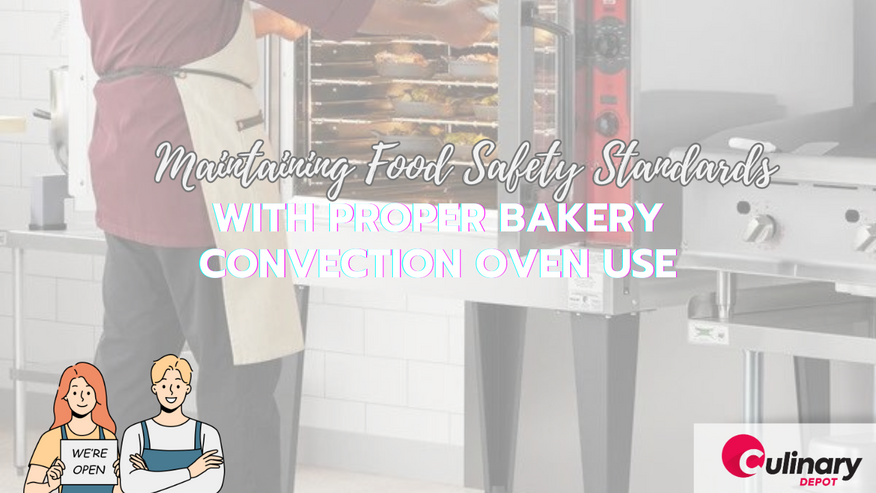May 14th 2024 - Team Member
Maintaining Food Safety Standards with Proper Bakery Convection Oven Use
In the bustling environment of a commercial bakery, maintaining food safety standards is paramount to ensure the health and well-being of customers. Proper use of bakery convection ovens plays a crucial role in this process, as these ovens are essential for baking a wide range of products, from bread and pastries to cakes and cookies. Let's delve into the key practices and guidelines for using bakery convection ovens to maintain food safety standards.
Importance of Food Safety in Bakeries

Food safety is a critical aspect of any food service establishment, including bakeries. Improper handling, storage, or cooking of food can lead to foodborne illnesses, which can have serious consequences for both customers and the bakery's reputation. It is essential for bakery owners and staff to understand and implement proper food safety practices to prevent such occurrences.
Cleaning and Sanitizing
One of the most important aspects of maintaining food safety in bakeries is ensuring that all equipment, including bakery convection ovens, is cleaned and sanitized regularly. Ovens should be cleaned thoroughly after each use to remove any food residue or grease buildup. This not only ensures that the oven operates efficiently but also reduces the risk of cross-contamination.
Regular cleaning with a damp cloth can help maintain the optimal air circulation within the oven, ensuring consistent cooking and baking results. Food handlers should also use oven mitts when handling hot pans or trays to prevent burns and ensure safe food handling practices.
Proper Temperature Control

Maintaining proper temperatures is crucial when using bakery convection ovens. Baked goods should be cooked at the appropriate temperature to ensure they are safe to eat. Additionally, ovens should be regularly calibrated to ensure they are heating accurately. This helps prevent undercooking or overcooking, which can lead to food safety issues.
Monitoring Internal Temperatures
It's also important to monitor the internal temperatures of baked goods to ensure they are cooked thoroughly. This can be done using a food thermometer inserted into the center of the product. Baked goods should reach a minimum internal temperature to ensure they are safe to eat.
Preventing Cross-Contamination

Cross-contamination is a significant concern in bakeries, as it can lead to the spread of harmful bacteria. To prevent cross-contamination, it's essential to keep raw and cooked foods separate and to use separate utensils and equipment for each. Additionally, surfaces should be cleaned and sanitized regularly to reduce the risk of contamination.
Training and Education
Proper training and education are key to maintaining food safety standards in bakeries. All staff should be trained on proper food handling and safety practices, including how to use bakery convection ovens safely. Regular refresher training should be provided to ensure that all staff are up-to-date on the latest food safety guidelines.
In conclusion, maintaining food safety standards in bakeries requires careful attention to detail and adherence to best practices. By following proper cleaning and sanitizing procedures, monitoring temperatures, preventing cross-contamination, and providing ongoing training, bakeries can ensure that their products are safe for consumption. Proper use of bakery convection ovens is an essential part of this process, and by following these guidelines, bakeries can uphold the highest standards of food safety.

